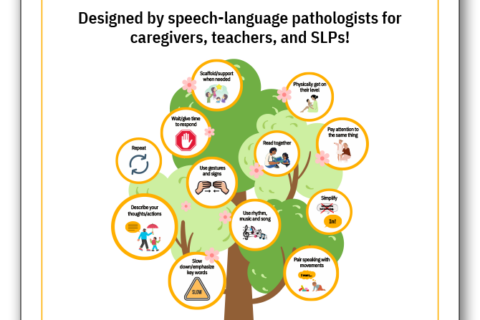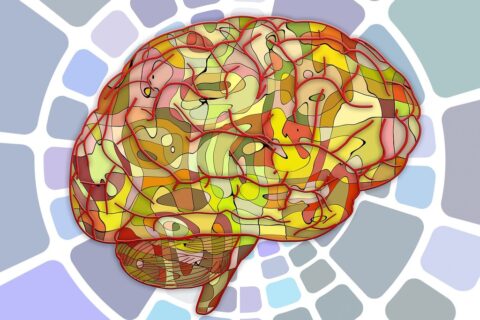Unraveling Cognitive and Language Challenges in Parkinson’s Disease
Parkinson’s disease (PD) is widely recognized for its impact on motor movements, but the complexities of cognitive and language difficulties associated with the condition are gaining increasing attention. Scientists are actively working on defining PD-related cognitive and language changes and characterizing their neurological underpinnings. In this blog, we’ll review known symptoms, discuss impacts on daily communication and quality of life, and offer guidance for increasing communicative success to optimize life participation and overall well-being.
PD and Cognitive Changes
Cognitive skills refer to a variety of functions that support thinking and information processing. Collectively, they serve as the bedrock on which language and effective communication are built. Cognitive communication processes support the ability to sustain attention, actively listen, and interpret and comprehend spoken language. They enable us to express thoughts in an efficient and organized manner, and ultimately participate in meaningful conversations and social interactions.
While not everyone with PD will necessarily experience changes to their cognition, the longer a person lives with PD, the more likely challenges may arise.
Some cognitive changes that can arise with PD include difficulty with:
- Sustaining attention
- Regulating inhibition
- Working memory
This can make it hard to process information quickly and easily. Individuals may struggle to understand long streams of complex information. It may also be hard to suppress irrelevant details or filter out extraneous environmental stimuli during a conversation.
Considering the numerous distracting physical concomitants that a person with PD is contending with at any given time, including those affecting speech. One can appreciate how challenging and exhausting it may be to sustain conversations promptly. This is particularly true during heightened states of emotions, cognitively loaded professional contexts, or in group settings.
One may notice that these changes contribute to difficulties:
- Maintaining a smooth flow of conversation
Responding appropriately in social interactions
PD and Language Comprehension
Comprehension of complex verbal and written language is also recognized as a symptom of later stages of PD. Some studies have reported individuals with PD present with reduced comprehension of syntactically complex sentences. These challenges may be present in reading tasks or when processing verbal language.
While scientific consensus regarding the underlying mechanisms for this is evolving, some research using (fMRI) imaging suggests this could be related to the fact that grammatically complex sentences tax working memory and information-processing resources. As the complexity of the sentence structures increases, so do the demands on the coordination of multiple cognitive processes including attention and working memory. One is required to mentally manipulate different sentence elements and hold multiple pieces of information in working memory to draw relationships between linguistic elements and extract meaning. The dopaminergic changes responsible for PD also affect working memory circuits in the brain and may thus be contributing to comprehension difficulties.
PD and Expressive Language
Expressively, over time, some individuals living with PD may note challenges with:
- Producing grammatically complex sentences
- Producing sentences using high-information content
- Word-finding difficulties in daily conversation and more pauses within utterances
- Grammatical errors
Such challenges can impact an individual’s ability to articulate thoughts and personal needs effectively. These obstacles may hinder one’s ability to contribute to a conversation with relevance and on time.
Tips for Supporting and Enhancing Communication
Facing challenges in communication can lead to profound social and emotional consequences, impacting one’s ability to convey messages and engage in daily activities. Unfortunately, individuals with PD often encounter heightened rates of depression and report a negative impact on their overall quality of life.
Communication facilitates and maintains meaningful connections. Establishing supportive social networks plays a pivotal role in preserving life quality, emotional well-being, and optimizing health and rehabilitation outcomes. Those who maintain connections with important people and loved activities tend to experience greater success navigating the various aspects of their health journey. Social connections help individuals adhere to treatment regimens, recognize progress, and achieve successful outcomes making stress more manageable. They also bolster motivation, confidence, and optimism in one’s health and ability to manage their journey.
Consider the following strategies to optimize communication:
- Eliminate external distractions such as the television, loud noises, physical, and visual distractions in the environment.
- Discuss upcoming social situations so individuals know what to expect and can plan what to say and prepare communication strategies accordingly
- Introduce the topic
- Discuss one topic at a time
- Ask one thing at a time
- Convey information in smaller chunks
- Consider using simpler syntax when appropriate
- Verify their understanding
- Verify your understanding by summarizing, expanding, or paraphrasing what has been said to ensure you have correctly understood the message
- Validate by acknowledging experiences of frustration and challenges communicating
- Acknowledge competence by affirming you know what the person with PD wants to say
- Ensure the conversation sounds normal and adult by using an appropriate tone of voice and using humor as appropriate
- Encourage individuals with PD to use any strategies practiced in speech therapy including checking in with posture, using a loud, strong voice, or tapping each word
In addition to cognitive and language changes, some of the most prevalent symptoms impacting communication for individuals with PD are reduced speaking volume and clarity of voice and speech. These voice and speech symptoms are medically termed dysarthria and can lead to feelings of embarrassment, irritation, and social isolation. Research indicates that approximately 9 out of 10 individuals with PD will face adverse changes to their voice, speech, and communication. Taking a proactive approach to managing these changes by seeking speech therapy for adults from a licensed speech-language pathologist can significantly enhance long-term communication outcomes. A licensed speech-language pathologist can guide you through evidence-based speech therapy exercises to address word-finding difficulties, cognitive-linguistic challenges, and initiate dysarthria treatment. Early intervention not only leads to quicker improvements but also contributes to the sustained maintenance of skills over time.
At Open Lines®, every clinician is specially trained and certified in LSVT LOUD which is globally recognized as the gold standard dysarthria treatment for voice and motor-speech difficulties in PD.
For more information on evidence-based treatment programs for individuals living with PD check out: Intensive Speech Programs for Parkinson’s Disease; A Guide to Speech Therapy for PD; How to Communicate With a Loved One With PD; Open Lines Founder Dr Jessica Galgano Gives Interview on MichaelJFox.org; What are LSVT LOUD for LIFE Programs; Speech Therapy Classes for Groups;
If you’re struggling with communication difficulties, it’s time to turn to Open Lines®. Contact us via phone (212-430-6800), email [email protected], or by filling out our convenient contact form. Improve your communication skills and unlock your potential with Open Lines® Speech and Communication in New York today!
Get in Touch With Open Lines®















